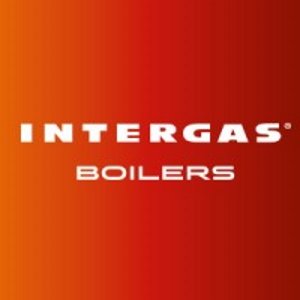Intergas Heating Ltd - Experts & Thought Leaders
Latest Intergas Heating Ltd news & announcements
Limescale build-up can defeat the best heating designs and installations if preventative action isn’t taken. John Lawton, Technical Product Manager at Intergas, believes the HydroFLOW HS38, an electronic water conditioner, should be a vital constituent of every central heating system, to ensure the long-term, efficient operation of domestic central heating systems. HydroFLOW HS38 Features It’s simple to install under the boiler (on the cold inlet pipework) It’s powered directly from the boiler PCB ( no external power source required) with a three-meter cable supplied (only costs approximately £1.50/year to operate) It clips onto the pipework via a patented clamp system (no need to cut the pipework or drain the water) It’s environmentally friendly as it does not use any chemicals (competitors use electrolytic types that have zinc sacrificial anodes which release small amounts into the water) It has a patented electronic water conditioner technology where the signal propagates around the entire hot and cold water pipework, which is unique to Intergas as we don’t use plate-to-plate heat exchangers so the waterway is always open allowing the electronic signal to flow with an uninterrupted signal heat-generating source The signal causes any limescale present to bond together (cluster) and, when subjected to heat, it will crystallize and travel out of the pipework with the water flow, preventing any build-up or damage occurring. The signal will also breakdown any existing limescale that has adhered to the internal pipework eventually clearing over time, subject to flow rate, temperature, and hardness. The signal can flow up and downstream of the HydroFLOW HS38, providing there is a clear path within the waterways, however, we recommend it is fitted closest to the heat-generating source for the best results.
UNESCO World Heritage Sites include exceptional cultural and natural phenomena, such as the Great Wall of China, the Taj Mahal, the Great Barrier Reef and, New Lanark, a purpose-built 18th-century mill village in the picture-postcard-perfect Lanarkshire countryside. It was developed in 1786 by David Dale, who built cotton mills and housing for the mill workers, and soon became a successful business and an important milestone in the historical development of urban planning. Once the mills ceased production, the buildings fell into disrepair until 1974 when the New Lanark Conservation Trust (NLCT) was founded, now known as the New Lanark Trust (NLT) to prevent the demolition of the village. Gradually the buildings have been restored and, in 2001, the village became a UNESCO World Heritage Site. gas boiler Installation As each property was upgraded, back boilers, storage heaters, or coal fires were fitted, and when accountant Tamara Jones bought a four-story house 14 years ago, one of 10 in a terrace, she inherited a back boiler in the basement that was 25 years old. Initially, she put up with its inefficiency, almost getting used to the hour-long wait before the water was hot enough to take a shower or bath, but when the boiler started breaking down regularly, installing an efficient boiler began to dominate her life. Her problems could easily have been solved if she’d opted for an all-electric system, but Tamara wasn’t a fan and had her heart set on a gas combi and all the benefits that come with it. Installing a gas boiler would mean flueing the boiler through an exterior wall or the roof, and that would affect the exterior of her home, which Tamara didn’t want to do, and the NLT wouldn’t allow. And so began a six-year campaign to find a method of flueing a gas boiler that would please all parties, and heating engineer, Steve Collins, Managing Director of Valleytech Heating, played a major role in Tamara’s eventual success. Boiler Maintenance Steve maintains the heating systems in many of the properties in New Lanark and was also Tamara’s heating engineer who’d repair her failing back boiler each year. He had to go electric in the past when residents wanted to upgrade, as it was a very straightforward installation and planning permission wasn’t required. ‘Repairing the back boiler at Tamara’s house was becoming more and more expensive, as the parts were getting increasingly difficult to find. But as there was no way to flue the boiler through the existing brick chimney, it meant no one in New Lanark had an energy-efficient gas heating and hot water system.' I started to investigate new methods of flueing the gas boiler but every system I developed was turned down by the NLT,’ said Steve. ‘Then, at a chance meeting with Alex MacAllister, the Intergas National Accounts Manager, at my local merchants, I learned that a solution existed all along. It’s called Flexi Flue.’ Intergas Flexi Flue System The Intergas Flexi Flue has a 10-meter flue system that can line a Class 1 chimney to the top of the chimney pot, leaving the exterior fabric of the building untouched. This was something that met with NLT approval, but Steve still had to work out which chimney belonged to Tamara’s property. When the houses were originally built, they were for multiple occupancies, with fires on all floors, which meant all the terraced properties had shared chimneys in the party wall. In Tamara’s case, six chimneys were running through her property. A smoke bomb helped locate the chimney pot and, from there, it was down to Steve to ascertain, using vibrations and precise measurements, wherein the wall he’d locate the correct chimney to install Flexi Flue. Once this was done, installation started. It was highly complex and, for three days during December 2019, Steve and his team of two heating engineers and one apprentice, fitted the very first energy-efficient gas combi – an Intergas HRE 36/40 – in New Lanark. The boiler was cited in the attic, so there was as little disturbance to the interior of the building as possible, and the pressure gauge and the filling loop was kept in a cupboard on the next floor down, so Tamara could check the pressure and top up if necessary, without going into the attic. Why Intergas? Steve has been installing the brand for years, not just because of the bithermic heat exchanger or its track record of reliability: ‘These boilers are amazing. Take the 36/40, you can run two baths at the same time* because it has the power to do that, and you don’t need to lose cupboard space to a cylinder; you’re only heating the water you need, which is highly energy-efficient and just what Tamara wanted.’ And did the new system deliver? 100%, says Tamara, ‘It may have taken six years to achieve what I wanted, but I wouldn’t settle. I didn’t want to go electric, it’s too expensive and I definitely wanted a combi so I could have instant hot water. With a double-height living room, cost-effective heating is vital. I wanted affordable comfort and now I’ve got it.’ As these plans have been passed by the NLT, any New Lanark resident who wants to upgrade their heating system to gas will find the approval process is more likely to take weeks not years. The installation time won’t be any shorter though, because locating the correct chimney will still require an accurate measuring tape and the patience of Job. * subject to various installation factors which must be checked by the installer beforehand.
Every day’s a school day, right? So, if one is sitting comfortably, Intergas would like to explain about Intergas Flexi Flue. Their 10-meter flue kit will line a traditional brick chimney (Class 1) all the way to the top of the chimney pot, leaving the exterior of the property unaffected. This is the answer to every installer’s prayers if they’ve been in the position of wanting to install a gas central heating system in a listed building but couldn’t find a way to flue the boiler. Gas central heating system Flexi Flue’s been available from them for over a decade, but they’ve clearly not been talking enough about it because when Steve Collins, Managing Director, Valleytech, asked his local merchants for advice on this very subject, he was told no such thing existed. Luckily Steve’s not easily put off and continued to search for an answer until he eventually met Alex MacAllister, the National Account Manager – Scotland at Intergas, who told him about Flexi Flue. Steve was then able to install a gas central heating system in his customer’s four-story property in New Lanark, a UNESCO World Heritage Site. What’s interesting about this installation is that’s it’s also the very first energy-efficient gas heating system in New Lanark. All property owners who previously wanted to upgrade their heating systems have had to go all-electric, as flueing through anything other than the chimney would contravene stringent planning regulations.
Leveraging Radiant And Hydronics To Help Achieve Decarbonization Goals
DownloadSealed Connectors In Harsh Environments
DownloadPowering And Cooling Next Generation Data Centers
DownloadDebunking Myths To Promote A Bright Future For Heat Pumps
DownloadOptimizing Comfort: The Ultimate HVAC Component Guide
Download









